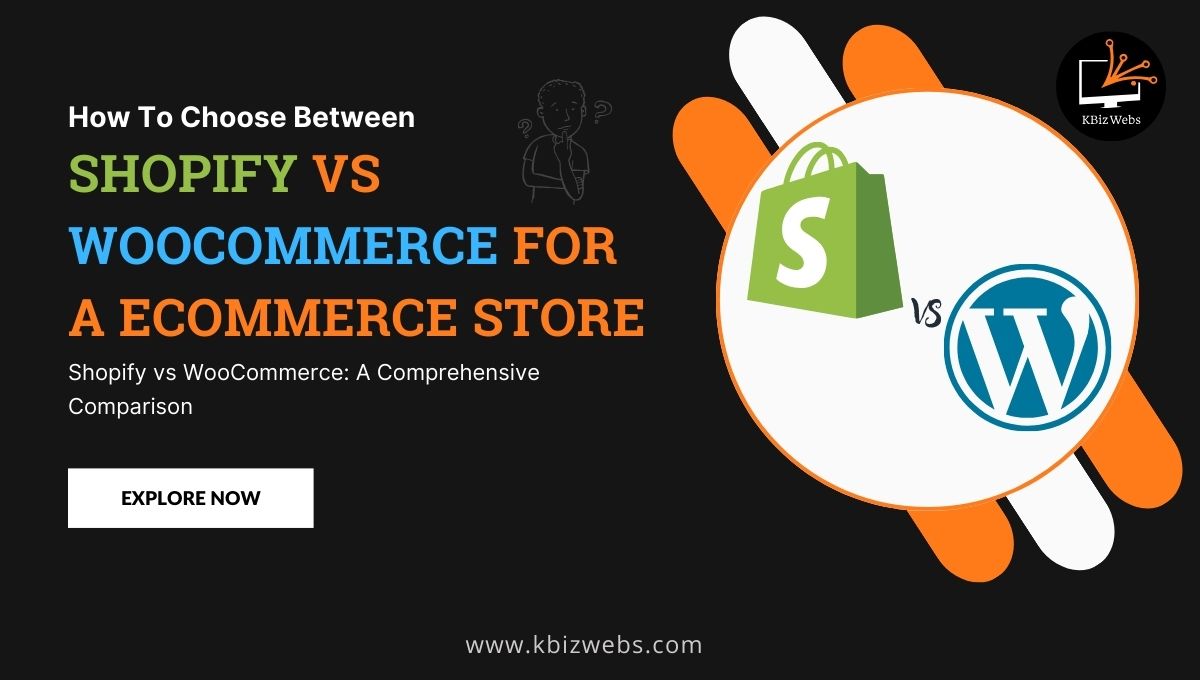
Starting an online store is an exciting endeavor, but selecting the right platform can be challenging. With countless options available, two platforms stand out: Shopify vs WooCommerce. Both are popular choices for eCommerce businesses, but understanding their differences can help you make the best decision. In this guide, I’ll break down the key features, pricing, customization options, and performance of both platforms to help you choose the ideal one for your business.
Shopify is an all-in-one eCommerce platform that allows you to set up, design, and manage an online store. It's fully hosted, which means Shopify handles everything from security to server maintenance.
WooCommerce is a powerful open-source eCommerce plugin for WordPress. It gives users complete control over their online store and requires hosting, domain registration, and some technical knowledge.
Shopify is user-friendly and perfect for beginners. Its drag-and-drop interface makes it easy to design and manage your store without technical skills.
WooCommerce offers flexibility but comes with a steeper learning curve. You need some technical knowledge to manage hosting, security, and updates.
Quick Tip: If you're starting on a budget, WooCommerce can be a cost-effective option. However, Shopify's transparent pricing simplifies cost management.
Shopify offers a wide range of professionally designed themes. While many are free, premium themes can cost between $100 to $350.
WooCommerce provides unlimited customization options. You can choose from thousands of free and premium WordPress themes and plugins.
Personal Insight: I love the freedom that WooCommerce offers when it comes to customization. If you enjoy creating a unique look for your store, WooCommerce is fantastic.
Shopify supports over 100 payment gateways, including Shopify Payments, which eliminates additional transaction fees.
WooCommerce supports virtually every payment gateway, but you may need to install additional plugins for some.
Quick Tip: Choose a platform that supports your preferred payment gateway to avoid compatibility issues.
Shopify can handle high traffic and large product catalogs without performance issues. It’s ideal for growing businesses.
WooCommerce is highly scalable but depends on your hosting provider’s capacity. You’ll need to optimize your site for performance as traffic increases.
Personal Story: One of my friends initially chose WooCommerce and later shifted to Shopify as their business scaled. Both platforms served well during different growth phases.
SEO Pro Tip: If ranking on Google is crucial, WooCommerce gives you more SEO control.
Personal Thought: While Shopify's simplicity is unbeatable, WooCommerce wins hands down for customization enthusiasts.
Your choice depends on your business needs:
Personal Suggestion: Think about your long-term goals. If you see yourself expanding rapidly, Shopify's support system might come in handy.
Shopify is better for beginners due to its user-friendly interface and all-in-one solution. WooCommerce requires technical knowledge.
Yes, you can migrate between the two platforms, but it may require professional assistance to ensure a smooth transition.
Migration Tip: Always back up your data before starting the migration process.
WooCommerce offers better SEO control, but Shopify provides built-in SEO tools that are sufficient for most businesses.
Shopify offers a seamless payment experience with Shopify Payments. WooCommerce supports multiple payment gateways but may require additional plugins.
WooCommerce can be more cost-effective if you choose affordable hosting and manage your site yourself. However, Shopify’s transparent pricing simplifies budgeting.
Shopify offers 24/7 customer support, while WooCommerce relies on community support and documentation.
Personal Experience: Shopify's support team has been a lifesaver for many entrepreneurs I know.
Choosing between Shopify vs WooCommerce ultimately depends on your business requirements, budget, and technical expertise. If you value ease of use and don’t mind paying for a subscription, Shopify is a great choice. On the other hand, if you want complete control and are comfortable with some technical responsibilities, WooCommerce is a better fit.
Remember, there’s no one-size-fits-all solution. Assess your business needs carefully and select the platform that aligns with your goals.
Personal Encouragement: You've got this! Whichever platform you choose, remember that success comes from your dedication and continuous learning.